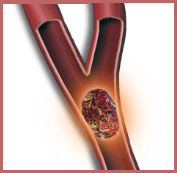Antiplatelet therapy is not a safer alternative to oral anticoagulants, even in older hospital-discharged patients with atrial fibrillation

Submitted: 1 July 2016
Accepted: 6 September 2016
Published: 4 October 2016
Accepted: 6 September 2016
Abstract Views: 1062
PDF: 537
HTML: 288
HTML: 288
Publisher's note
All claims expressed in this article are solely those of the authors and do not necessarily represent those of their affiliated organizations, or those of the publisher, the editors and the reviewers. Any product that may be evaluated in this article or claim that may be made by its manufacturer is not guaranteed or endorsed by the publisher.
All claims expressed in this article are solely those of the authors and do not necessarily represent those of their affiliated organizations, or those of the publisher, the editors and the reviewers. Any product that may be evaluated in this article or claim that may be made by its manufacturer is not guaranteed or endorsed by the publisher.
Similar Articles
- Francesco Vetta, Gabriella Locorotondo, Giampaolo Vetta, Anticoagulation therapy in the elderly with non-valvular atrial fibrillation: a double-edged sword , Geriatric Care: Vol. 3 No. 2 (2017)
- Antonio Cherubini, Barbara Carrieri, Paolo Marinelli, Advantages and disadvantages of direct oral anticoagulants in older patients , Geriatric Care: Vol. 4 No. 1 (2018)
You may also start an advanced similarity search for this article.

 https://doi.org/10.4081/gc.2016.6120
https://doi.org/10.4081/gc.2016.6120



